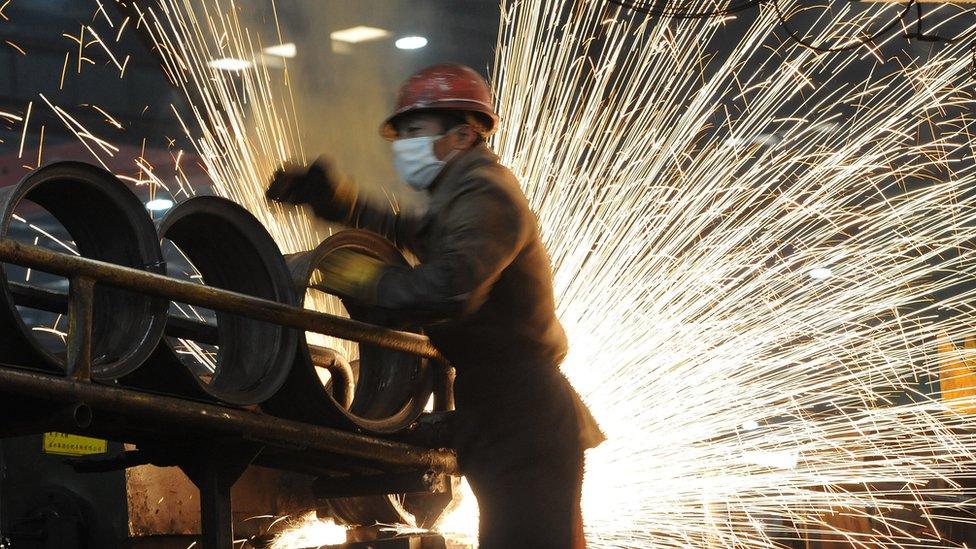IMF says world at risk of 'economic derailment'
- Published
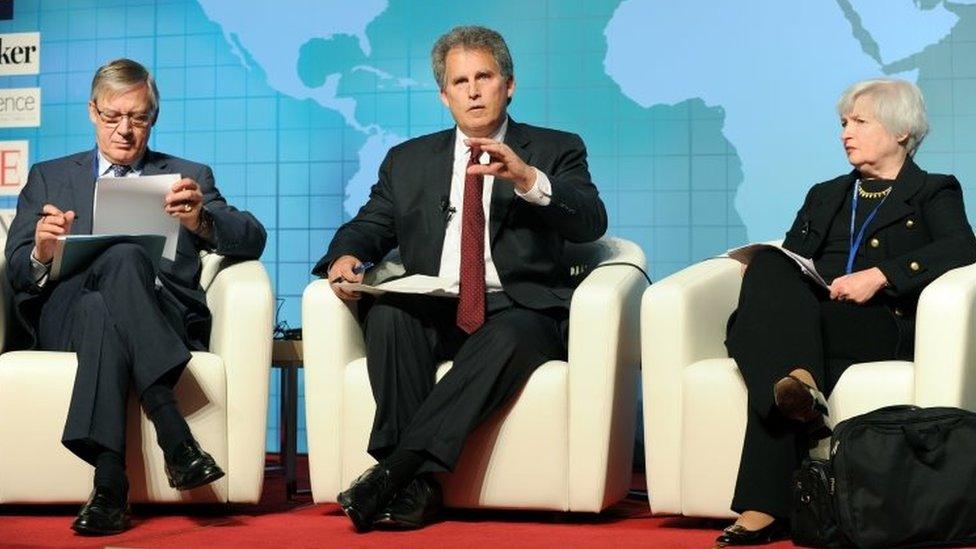
IMF deputy chief David Lipton, centre, says more forceful policy action is needed
The International Monetary Fund (IMF) has warned that the global economy faces a growing "risk of economic derailment."
Deputy director David Lipton called for urgent steps to boost global demand.
"We are clearly at a delicate juncture," he said in a speech to the National Association for Business Economics in Washington on Tuesday.
"The IMF's latest reading of the global economy shows once again a weakening baseline," he warned.
The comments come after weaker-than-expected trade figures from China showing that exports in February plunged by a quarter from a year ago.
With the world's second largest economy often referred to as as "the engine of global growth", weaker global demand for its goods is read as an indicator of the general global economic climate.
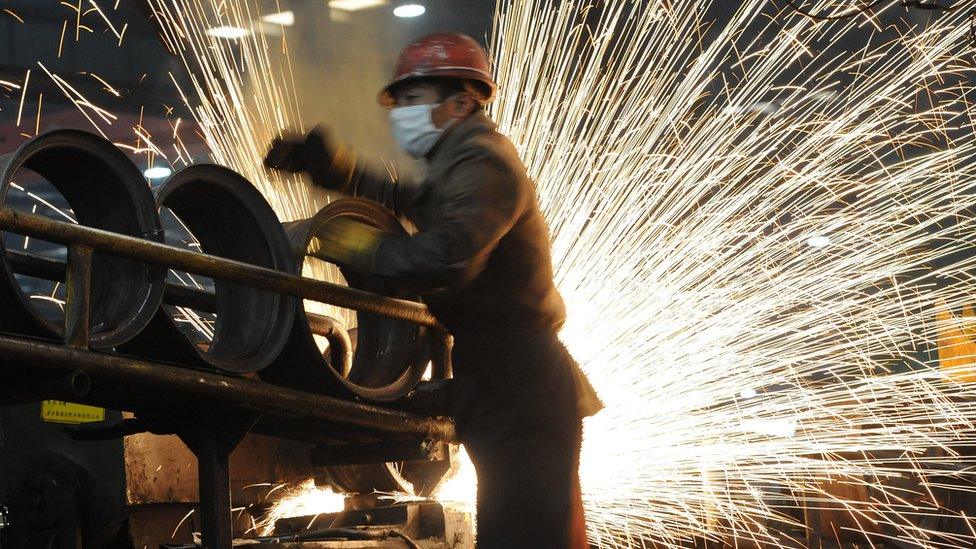
If the global growth engine stutters, it's time to worry
'Highly vulnerable'
The IMF has already said it is likely to downgrade its current forecast of 3.4% for global growth when it releases its economic predictions in April.
Last month, the international lender had warned that the world economy was "highly vulnerable" and called for new efforts to spur growth.
In a report ahead of last month's Shanghai G20 meeting, the IMF said the group should plan a co-ordinated stimulus programme as world growth had slowed and could be derailed by market turbulence, the oil price crash and geopolitical conflicts.
In his Washington speech, Mr Lipton said "the burden to lift growth falls more squarely on advanced economies" which have fiscal room to move.
"The downside risks are clearly much more pronounced than before, and the case for more forceful and concerted policy action, has become more compelling."
"Moreover, risks have increased further, with volatile financial markets and low commodity prices creating fresh concerns about the health of the global economy," he added.
The downbeat picture is one that has continuing ramifications for businesses and industries that bet on China's growth story.
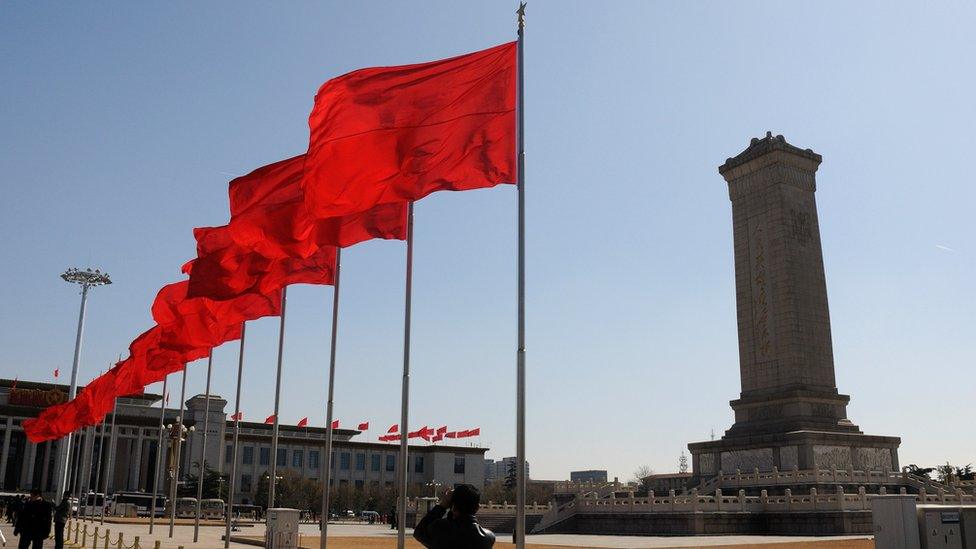
Beijing faces the tough task of reforming the economy while trying to maintain stability
A slew of weak economic data has recently added to those concerns and US ratings agency Moody's has downgraded its outlook for China from "stable" to "negative".
There also is concern over rising unemployment as Beijing seeks to gradually shift its economy from overdependence on manufacturing and industry towards more services and consumer spending.
China's economy is growing at the slowest rate in 25 years, and the slowdown has created considerable uncertainty in financial markets around the world and led to sharp falls in commodity prices.
- Published8 March 2016
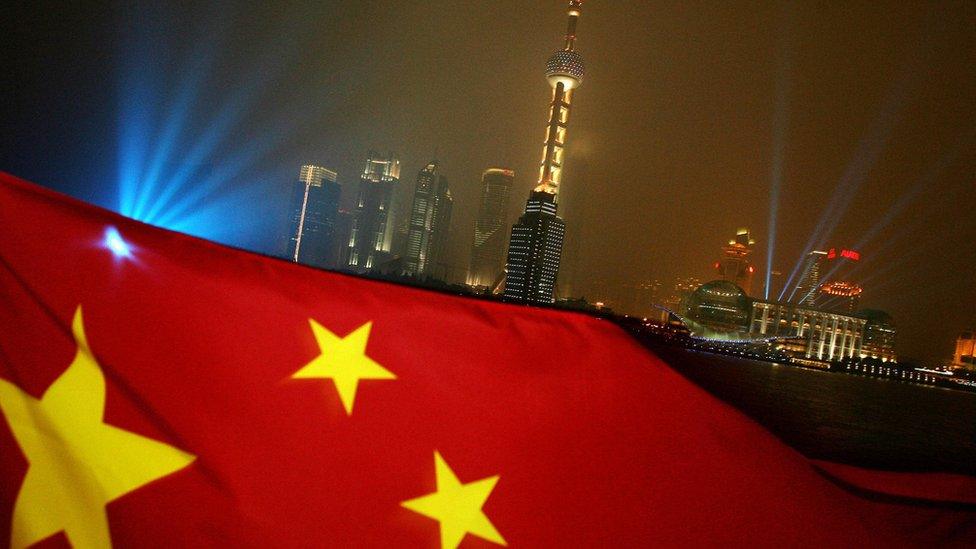
- Published2 March 2016
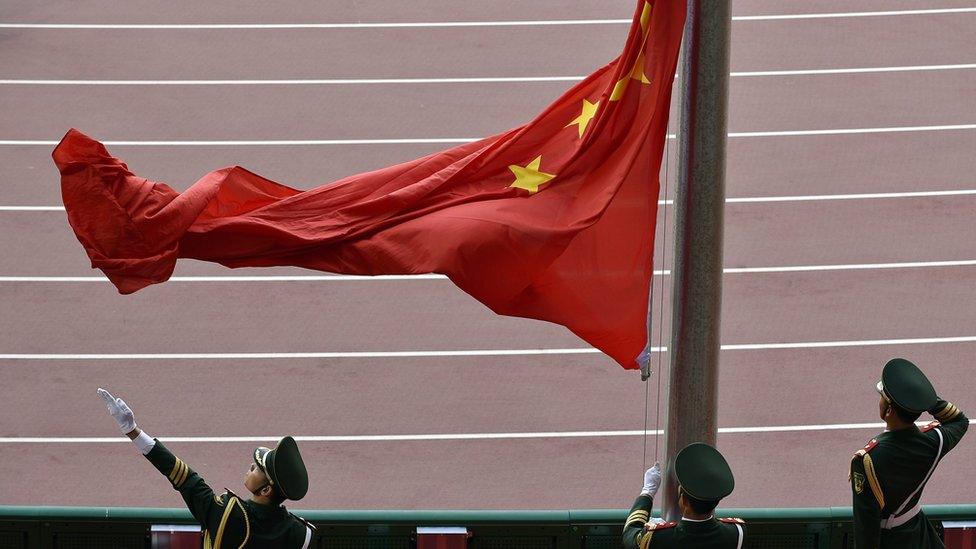
- Published1 March 2016
